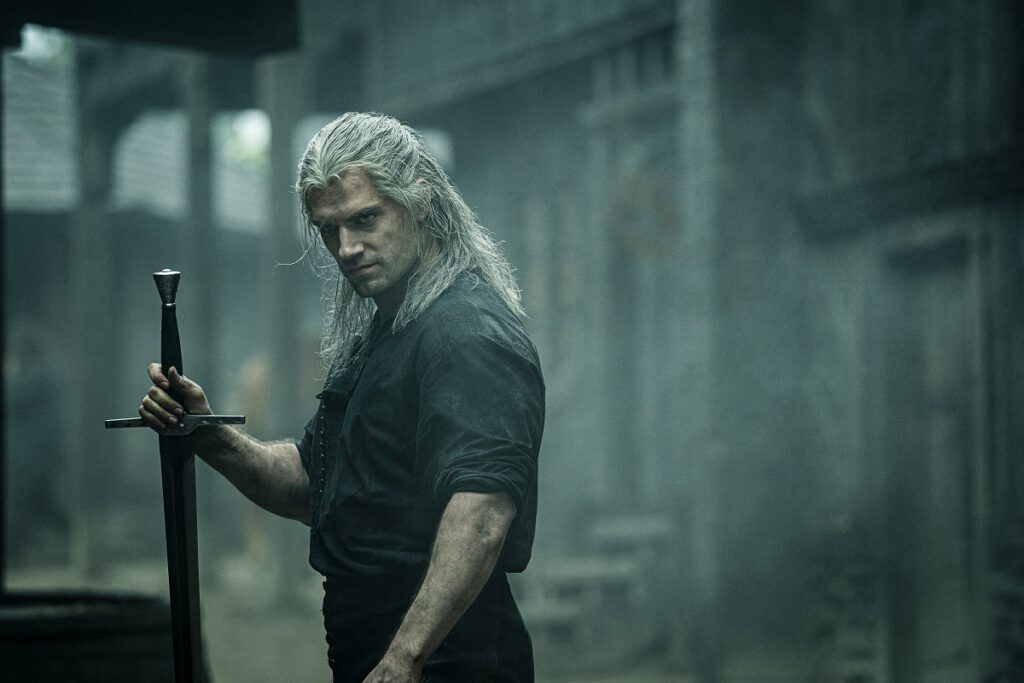At its best, Netflix’s adaptation of the hit novels and video games that tell the story of “The Witcher,” aka Geralt of Rivia, reminds one of HBO’s “Game of Thrones” with its blend of dense plotting, magical creatures, and a heavy dose of R-rated activity. At its worst, “The Witcher” is downright incomprehensible, so cluttered with characters, monsters, and overheated dialogue that it becomes hard to care. For nearly the first half of the season, the latter feeling drastically overcomes the former. I was reminded more of the recent “Hellboy” reboot than the HBO Emmy-winning juggernaut in the way that film’s mythology felt shallow and inconsistent, mistaking shock value for storytelling. I couldn’t really tell you what most of the season was about, but episodes about a djinn and another about a dragon in the middle of the season have pure fantasy entertainment value. If you don’t take any of this more seriously than a holiday diversion, it has undeniable moments, and a fearless performance from its leading lady. But it’s safe to say that the throne of fantasy adulation on which HBO sits, even after the divisive final season, remains unchallenged.

Based on the hit books by Andrzej Sapkowski and the highly acclaimed series of video games—“The Witcher 3: Wild Hunt” is one of the most essential releases of its generation—“The Witcher” (featuring Henry Cavill in the title role) was originally pitched as a feature film for Netflix, but the team behind it, including creator Lauren Schmidt Hissrich, thought the books were too rich for one movie. That’s probably accurate, although one gets the feeling this could have been more comprehensible with the necessity of tighter storytelling. Sometimes giving a creator more space allows them to go off on flights of fancy and deep dives into the mythology of a universe that a show can’t sustain, and the first three episodes of “The Witcher” actively annoyed me on this level. Creatures, new characters, rival factions, lots of overheated dialogue—it just doesn’t hold together, and most people are going to give up. Those who stick with it will find it gets notably better, although never quite shakes all of its flaws.
Henry Cavill lowers his voice and looks as serious as possible as Geralt, something of a mercenary in a land of monsters and sorcery. He’s an outcast monster hunter, deemed a mutant himself because of his identity as a witcher, beast hunters who have supernatural abilities of their own. The cluttered opening arc of the season involves a vicious battle that leaves a princess named Ciri (Freya Allan) exiled from her land. For too long, Ciri becomes something of a secondary character, so much so that when the narrative returns to her I had pretty much forgotten who she was and why she matters. Far more interesting is the arc of Yennefer of Vengerberg, played by the series-stealing Anya Chalotra. An outcast who becomes incredibly powerful, Yennefer develops a relationship with Geralt in the season’s midsection and that’s when the show really comes together. Cavill and Chalotra have chemistry that finally gives the show a center instead of spinning mythology that most people won’t know or care about.
They may not care after that point either. There’s a sense, even when “The Witcher” is working on its own terms, that it’s shallow nonsense, and Cavill’s overly mannered performance doesn’t help. What’s worse is how much he and Chalotra are left on their own. The “Game of Thrones” comparison is clearly intentional, but one thing, among many, that the HBO show had that this one does not is a deep ensemble. Every time “The Witcher” drifted from Yennefer and Geralt, my mind wandered. Hardcore fans of the books may not care because they can fill in the blanks themselves, but I played “Witcher 3” for hours and even I couldn’t get sucked into this world in TV form. Those with even less familiarity may just decide to go and watch “Game of Thrones” again. Well, maybe not its last season.
Whole season screened for review.












